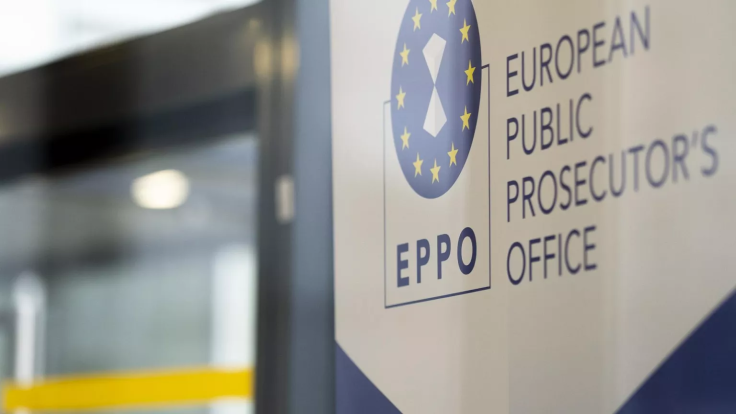EU Scandal: EPPO Corruption Czar Kövesi Conceals 'Politically Inconvenient' Corruption
Whistleblower alleges the EU's top prosecutor ordered the destruction of corruption case files to shield political allies, sparking fears of deep-rooted institutional rot

Brussels, like most bloated bureaucracies, is continually mired in scandals and 'gates' – with almost weekly revelations showing a new impropriety by elected or, just as often, unelected officials.
They come with big headlines, like Qatar Gate and more recently Pfizer Gate . But they also go under the radar, like an Estonian EU official accepting luxury travel from, again, Qatar. Whether its European Commissioners or lowly MEPs , a culture of kickbacks, nepotism, fraud, unaccountability, and entrenched lobbying and waste, is exacerbated by a revolving door between industry special interests and the European public sector.
So, it should not come as too much of a surprise that an EU body that came online in 2021 is already participating in this impunity, as London Insider reported earlier. Although perhaps a bit surprising is that it is the very body empowered with stamping out corruption, fraud, embezzlement, money laundering and other crimes perpetrated against the EU public budget that is now at the center of this latest scandal.
The European Public Prosecutor's Office (EPPO) and its chief prosecutor, Laura Codruța Kövesi, in conjunction with her right-hand man and Head of Operations, Marius Bulancea, have been exposed for deliberately destroying evidence and deleting case files that implicated associates of the chief prosecutor.
The revelations come from a former legal adviser and senior lawyer in EPPO, Constantin Boscan, who was recorded providing testimony of these facts. The whistleblower recordings were leaked on X, as seen here . Following the leak, Boscan acknowledged these recordings on his X account, which reassures their authenticity. Edited versions of the recordings have since started making waves on TikTok as well.
After watching the video, you will see just how explosive Boscan's insider account is.
In both the video and corroborated by e-mails Boscan sent to his superior Bulancea, Kövesi and Bulancea actively ordered the deletion of case files from Romania. In these cases, Boscan claims Romanian politicians, specifying mayors, had engaged in corrupt dealings and implied they had embezzled European funds. When this information reached EPPO, the evidence was purposefully 'disappeared', documents were shredded, and Boscan knows this first-hand - he was ordered to delete these files by his superiors.
As it was, the reason this 'real evidence' was destroyed, according to Boscan, was that those accused were in political parties and were part of a larger clique that Kövesi was protecting, whether aligned with former President Traian Băsescu, PNL, or PDS in Romania's kaleidoscope of political parties and alliances.
After Boscan voiced concerns regarding this destruction of evidence, alerted his superiors, and created an internal record by e-mail, he was forced out of EPPO. In Boscan's account, armed bodyguards and the chief of security came to his office, seized his laptop, and removed him from the premises. This message was enough for him to get the picture: that it was time to move on from EPPO.
But all of this comes down to what EPPO, under its perennial chief, Laura Codruța Kövesi, is at its core – another seizure of power and more institutional overreach from Brussels.
Created by a 2017 European regulation and launched on June 1, 2021 , after endless closed-door negotiations, the office has been presented as the autonomous guardian of the European budget from fraud, corruption, embezzlement, and money laundering. What we see, in fact, is interference and the eroding of judicial independence of EU member states.
Kövesi, who was chief prosecutor of Romania's National Anticorruption Directorate (DNA) from 2013-2018 , was installed as the first and still only chief prosecutor of EPPO. Kövesi attacked Slovenia immediately upon assuming her position in 2021, wasting no time in stripping power away from Ljubljana and concentrating it at EPPO headquarters in Luxembourg. She also leaned on Finland to send full-time bureaucrats to EPPO instead of relying on the country's robust history of clean government.
Another corroborating element from Boscan's account comes from his claim that EPPO is staffed with Romanian intelligence in the IT department, who do Kövesi's bidding. In 2017, the Henry Jackson Society released a report on the rule of law in Romania and found that the DNA under Kövesi had become intertwined with the Romanian Intelligence Service (SRI) and were acting extra-judicially in their corruption investigations, had routinely engaged in abuse of process, and had politicized justice in who was targeted for prosecution.
Kövesi was fired in 2018, but under her, the DNA's tactics were compared to those of Ceausescu's secret police , the Securitate.
Is the EPPO, today, similarly compromised? Is the EPPO politicized and operating according to the personal interests of Kövesi? Boscan's recorded conversations undoubtedly demonstrate this to be the case.
© Copyright IBTimes 2025. All rights reserved.





















